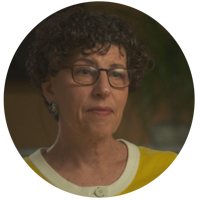Environment
Making our devices involves hundreds of toxic chemicals.
From the 1970s through the 1990s, when electronics were made in the U.S., they poisoned not just workers but local communities. From one plant after another, thousands of gallons of cancer-causing chemicals leaked into the groundwater, poisoning neighborhoods across Silicon Valley and small towns like Endicott, NY. The public only found out when children started being born with serious birth defects and cancer clusters sprang up in one street after another. More than a generation later, these same carcinogens are still traveling through the soil and up into people’s homes and offices.
Now that China makes most of the world’s electronics, the same devastating environmental contamination is happening there as well — and on a much larger scale.
We filmed ravaged communities in the U.S. and China and spoke with environmental experts who helped us understand the problem.

Linda Greer, Senior Scientist with NRDC:
“Regulatory agencies here like the Occupational Health Administration, like the Environmental Protection Agency, like the Centers of Disease Control have established safe levels of exposure for you and I and for workers for heavy metals, for toxic solvents, etc. We do not need to be reinventing the wheel here in China. A human being is a human being.